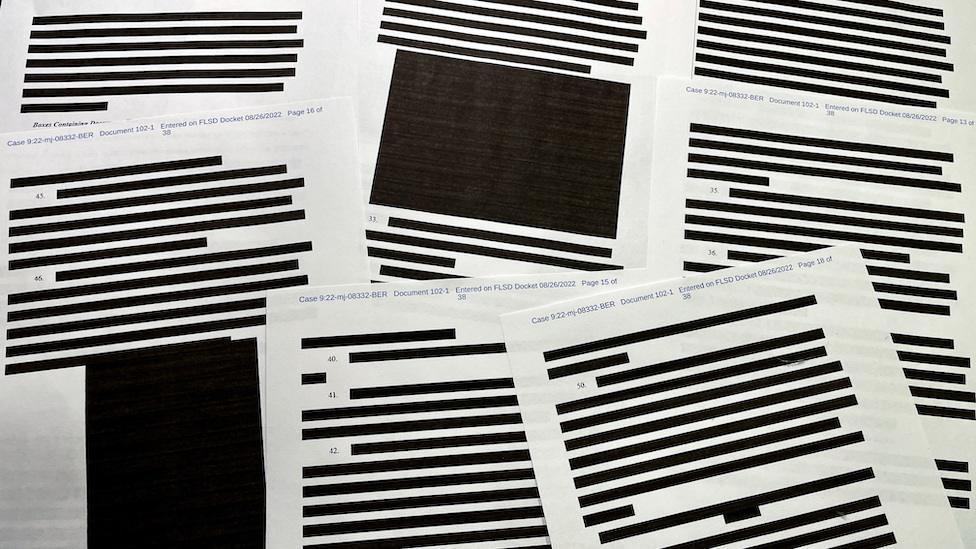No charge for Biden over classified documents but report questions memory
- Published
Watch: Joe Biden contrasts his handling of classified documents with Donald Trump
US President Joe Biden was found by a special counsel to have "wilfully retained and disclosed classified materials" but he will not face charges.
A Special Counsel report said he had kept secret documents related to military and foreign policy in Afghanistan after serving as vice-president until 2017.
But they said it would be difficult to convict Mr Biden as he comes across as an "elderly man with a poor memory".
The White House hit back at that characterisation.
"We do not believe that the report's treatment of President Biden's memory is accurate or appropriate," wrote White House lawyer Richard Sauber.
"The report uses highly prejudicial language to describe a commonplace occurrence among witnesses: a lack of recall of years-old events."
The report from Special Counsel Robert Hur - appointed by the justice department - was released after an investigation that lasted more than a year and related to files found at Mr Biden's home and former private office from 2022-23.
The report revealed for the first time that the documents were classified as Top Secret - the highest level of classification, and related to Afghanistan.
The files included notebooks containing Mr Biden's entries about national security and foreign policy matters "implicating sensitive intelligence sources and methods".
It criticised Mr Biden for sharing some of the sensitive material in those notebooks with a ghostwriter for his memoir.
But Mr Hur said: "We conclude that the evidence does not establish Mr Biden's guilt beyond a reasonable doubt.
"Prosecution of Mr Biden is also unwarranted based on our consideration of the aggravating and mitigating factors."
Biden's memory had 'significant limitations'
The 345-page report was released publicly on Thursday after the White House said it would not request any redactions.
Investigators conducted 173 interviews with 147 witnesses, including President Biden himself.
The special counsel's report said that it would be difficult to convict the president of improper handling of files because "at trial, Mr Biden would likely present himself to a jury, as he did during our interview of him, as a sympathetic, well-meaning, elderly man with a poor memory".
"It would be difficult to convince a jury that they should convict him - by then a former president well into his 80s of a serious felony that requires a mental state of willfulness."
Mr Hur's report also said Mr Biden's memory seemed to have "significant limitations" during interviews. He could not recall when he was vice-president (from 2009-2017), or "even within several years, when his son Beau died" (2015), the investigation said.
It added: "And his memory appeared hazy when describing the Afghanistan debate that was once so important to him."
Mr Biden, 81, welcomed the decision not to charge him in remarks at a Democratic retreat in Leesburg, Virginia, saying: "This matter is now closed."
He said he had co-operated with investigators, and accused Donald Trump of obstructing the inquiry into his own alleged mishandling of secret records. The former US president faces a criminal trial this year.
In a statement earlier by the White House Mr Biden said he had sat for a total of five hours of interviews on 8-9 October "even though Israel had just been attacked on October 7th and I was in the middle of handling an international crisis".
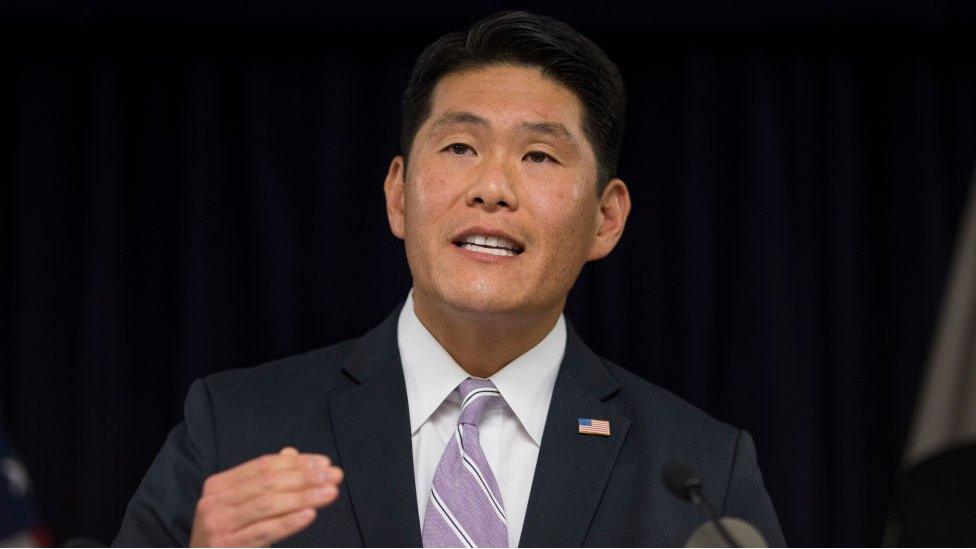
Mr Hur, a Trump nominee, was appointed by US Attorney General Merrick Garland in early 2023 to lead the investigation.
White House slams 'highly prejudicial language'
The report comes with an attached letter from Mr Biden's legal team, criticising the special counsel.
"We do not believe that the report's treatment of President Biden's memory is accurate or appropriate," wrote White House lawyer Richard Sauber.
"The report uses highly prejudicial language to describe a commonplace occurrence among witnesses: a lack of recall of years-old events."
The president's Republican critics seized on the report.
A joint statement released by Republican House leadership called the comments about Mr Biden's memory lapses "the most disturbing parts".
"A man too incapable of being held accountable for mishandling classified information is certainly unfit for the Oval Office," the Republicans wrote.
The presidential campaign of Donald Trump released a statement saying: "If you're too senile to stand trial, then you're too senile to be president. Joe Biden is unfit to lead this nation."
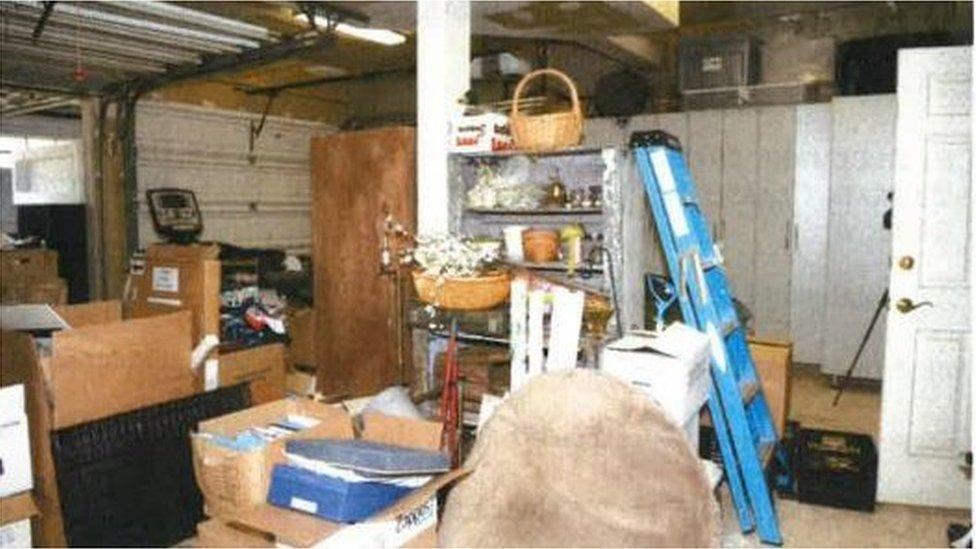
The report includes photos of documents in Mr Biden's cluttered garage
The report says that Mr Biden's actions "present[ed] serious risks to national security, given the vulnerability of extraordinarily sensitive information to loss or compromise to America's adversaries".
"But addressing those risks when pursuing criminal charges, the only means available to this office, is not the proper remedy here."
Ghostwriter deleted Biden recordings
The report also says that Mr Biden divulged classified material from his hand-written notebooks to the ghostwriter for his 2018 memoir Promise Me, Dad.
The ghostwriter, Mark Zwonitzer, deleted audio recordings of discussions with Mr Biden after learning of the special counsel's probe, the report says.
Prosecutors considered filing charges against the ghostwriter, but ultimately declined to do so after determining that his deleting of the tape was "his standard practice with his clients".
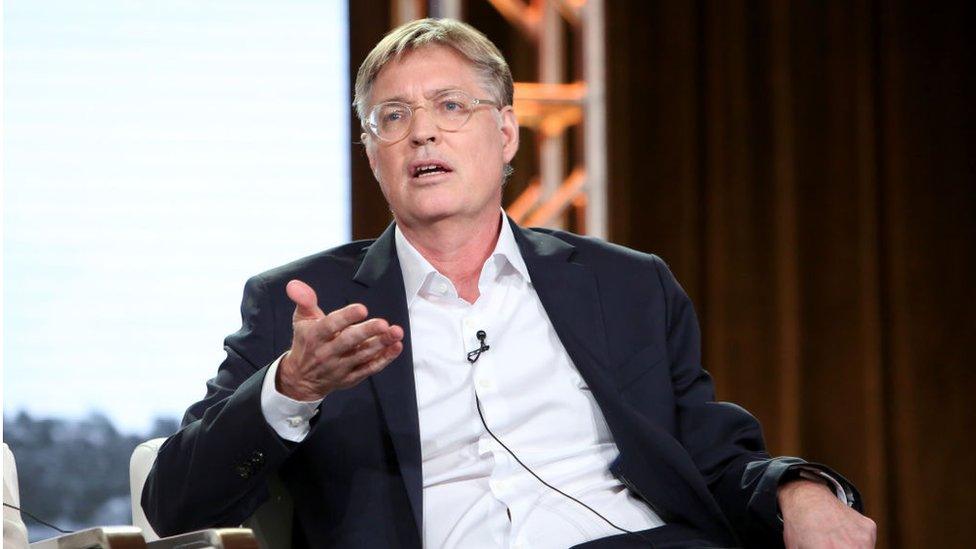
Mark Zwonitzer seen speaking at an entertainment panel in 2018
The Hur report also alleges Mr Biden had "a strong motive" to retain some of the classified files because he wanted to prove that President Barack Obama, whom he served under as vice-president, was wrong about Afghanistan.
It says he hoped to demonstrate that Mr Obama's 2009 troop deployment to fight the Taliban "was a mistake on par with Vietnam".
Watch: How much do you know about classified documents?
Mr Hur, a Trump nominee, was appointed by US Attorney General Merrick Garland in early 2023 to lead the investigation.
The inquiry began after a separate inquiry had been launched into secret documents found at Mr Trump's Florida home.
In June, Mr Trump was charged with seven counts of mishandling classified documents at Mar-a-Lago in Palm Beach.
He has denied any wrongdoing and repeatedly argued it was his right to retain the records. His trial is set to begin in Miami in May.
In Mr Biden's case, documents were first discovered by his aides in an office he used after departing the vice-presidency in 2017 and before he launched his 2020 bid for the White House.
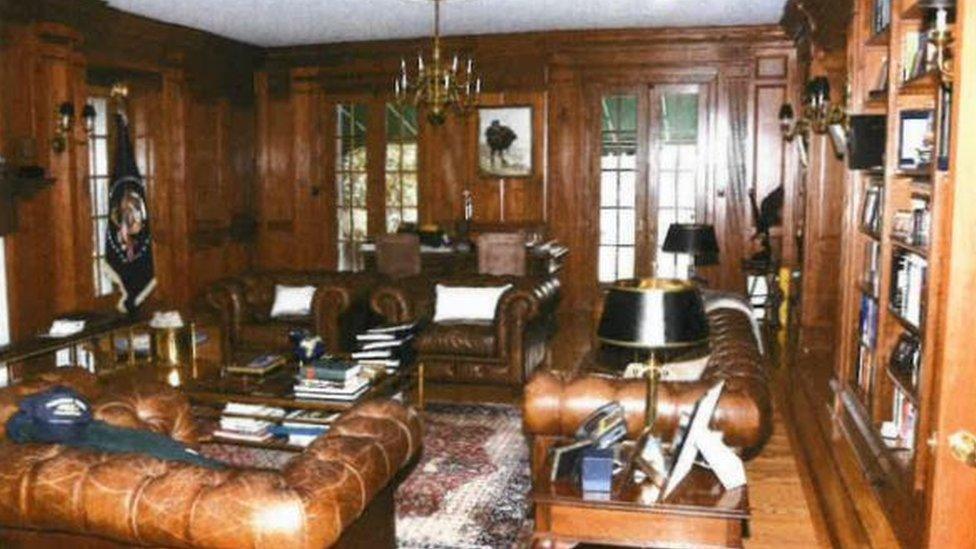
Mr Biden's notebooks were also recovered from his Delaware home office
The first batch of classified documents were discovered in November 2022 at a think tank he founded in Washington DC.
A second cache was found in December 2022 next to a dog bed in the garage of his Wilmington, Delaware, home. Another document was found in a storage space at the house in January 2023, his lawyers said at the time.
After uncovering the files, the president said his team turned them over to the National Archives and the Department of Justice.
Related topics
- Published12 June 2023
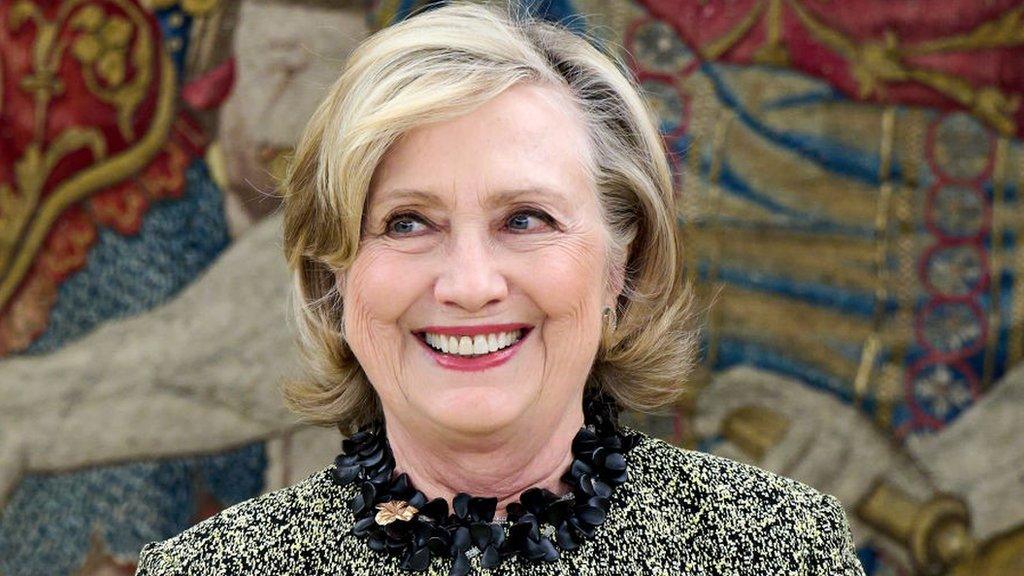
- Published28 July 2023
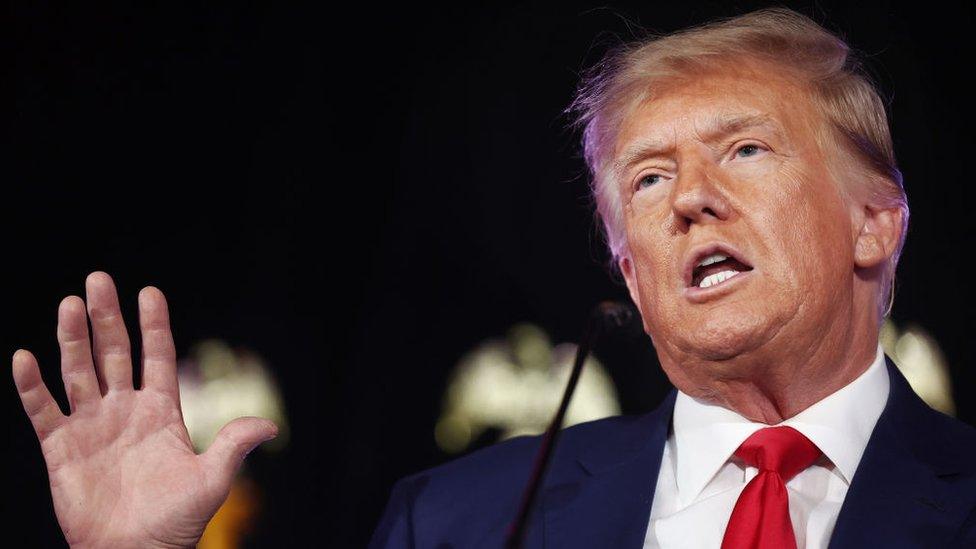
- Published25 January 2023
